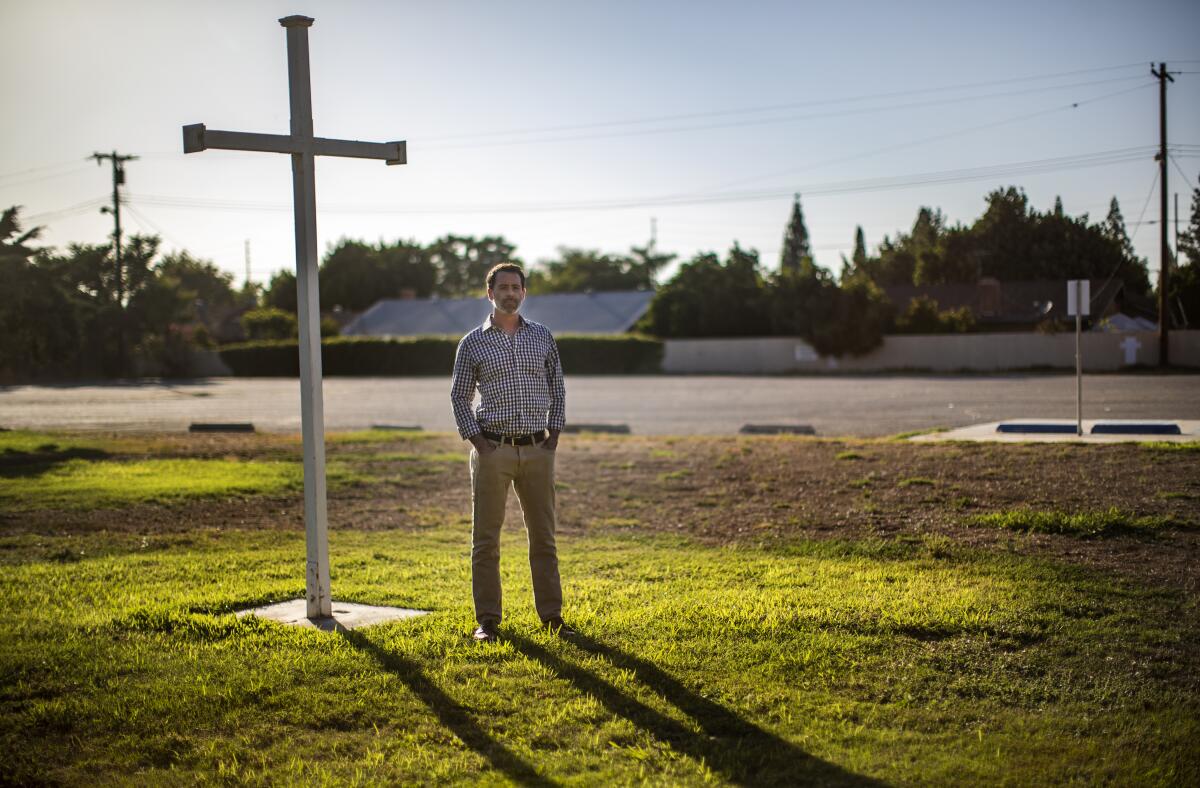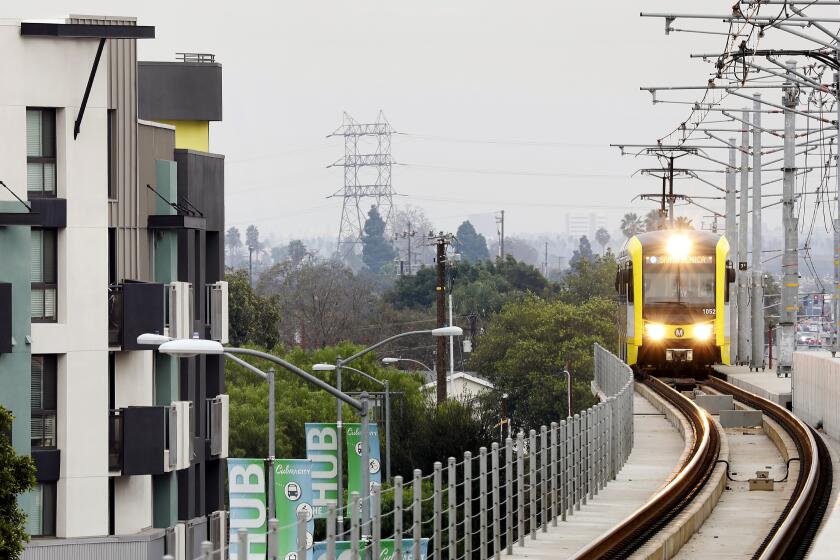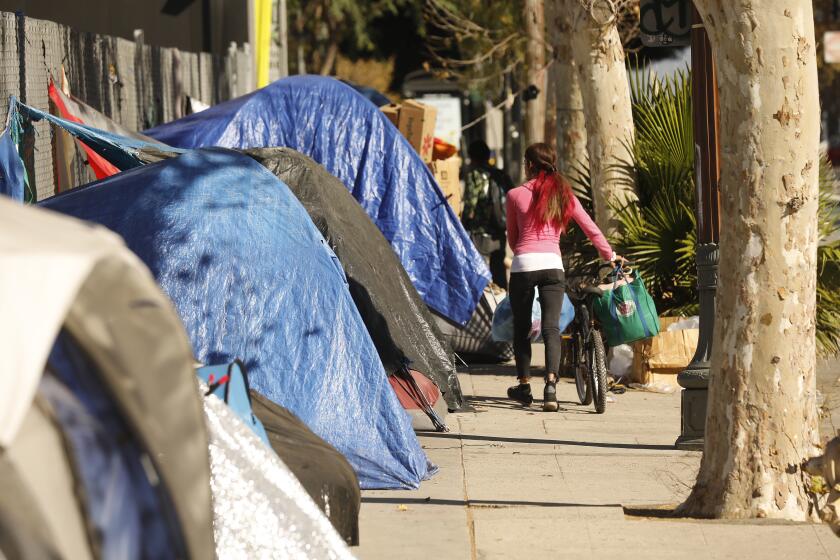Editorial: Religious institutions want to build affordable housing. Say ‘Yes in God’s Backyard’

- Share via
Throughout California, there are churches, temples and mosques sitting on large swaths of underused land. Many religious leaders want to put that property to work serving their mission and their communities by building affordable housing.
Few can do it because the cost of constructing affordable housing is staggering and it can take years to get permission to build, but a bill introduced this month aims to make it much easier to say “Yes in God’s Backyard” to more homes.
Senate Bill 4 by Sen. Scott Wiener (D-San Francisco) would allow 100% affordable housing projects to be built by right — meaning the development proposal would be reviewed by city staff but the projects wouldn’t need planning commission or city council approval — if the developments are on land owned by religious institutions or nonprofit colleges and meet objective planning standards. A project could be built even if the zoning wouldn’t normally allow apartments, and couldn’t be slowed or blocked by environmental lawsuits.
If state leaders are serious about making California affordable, they should block local laws that require parking that may be unnecessary and costly.
SB 4 could unlock affordable housing opportunities across the state. California has nearly 39,000 acres of land used for religious purposes that could be developed, according to an analysis by UC Berkeley’s Terner Center for Housing Innovation. That’s roughly the size of the city of Stockton. Nearly half of the land is in so-called high opportunity neighborhoods that have low poverty, and residents tend to have better economic, educational and health outcomes. These are communities where it can be particularly difficult to build affordable housing because of the price of land, zoning and neighbor opposition.
Easing development restrictions on land owned by religious institutions could be beneficial for cities and counties that have to build a lot more affordable housing to meet state targets — and there’s not enough public funding to subsidize all those units. The private and nonprofit sectors, including faith communities, can be essential in easing the housing crisis.
And there’s a value for religious institutions as well. Many are cash-poor but land-rich, with large parking lots and underused offices or classrooms, particularly as fewer people participate in organized religion and congregations shrink. Allowing them to build low-income housing would make better use of their property and generate income from the rentals. The bill also applies to nonprofit colleges, and it would make it easier for campuses to add affordable housing for employees and students.
Homeless numbers rose significantly less in the past two years. Experts say if we want them not to shoot up again, keep tenant protections in place.
“There are a lot of faith communities that see this as an essential expression of their faith, addressing the housing and homeless crisis,” said Assemblymember Jesse Gabriel (D-Encino), a co-author of the bill and chair of the Legislature’s Jewish Caucus. “This is, to me, such a common-sense approach and one that can move the needle at a time when we are resource-constrained.”
SB 4 is the third version of the bill that Wiener has introduced. The 2020 version passed the Senate unanimously but was blocked in the Assembly because of a larger fight with the powerful State Building Trades Council over requiring that union construction workers and apprentices build affordable housing projects that benefit from state laws overriding local zoning and land-use rules.
The Trades Council is opposing SB 4 for the same reason. But another influential labor group is backing the bill — the California Conference of Carpenters signed on as a co-sponsor. SB 4 includes compromise language that lawmakers backed last year in another housing streamlining bill that required union-level wages but not necessarily a union workforce.
Perhaps the third time’s the charm. Lawmakers shouldn’t squander this opportunity again. California desperately needs more affordable housing and religious institutions are ready to help.
More to Read
A cure for the common opinion
Get thought-provoking perspectives with our weekly newsletter.
You may occasionally receive promotional content from the Los Angeles Times.












